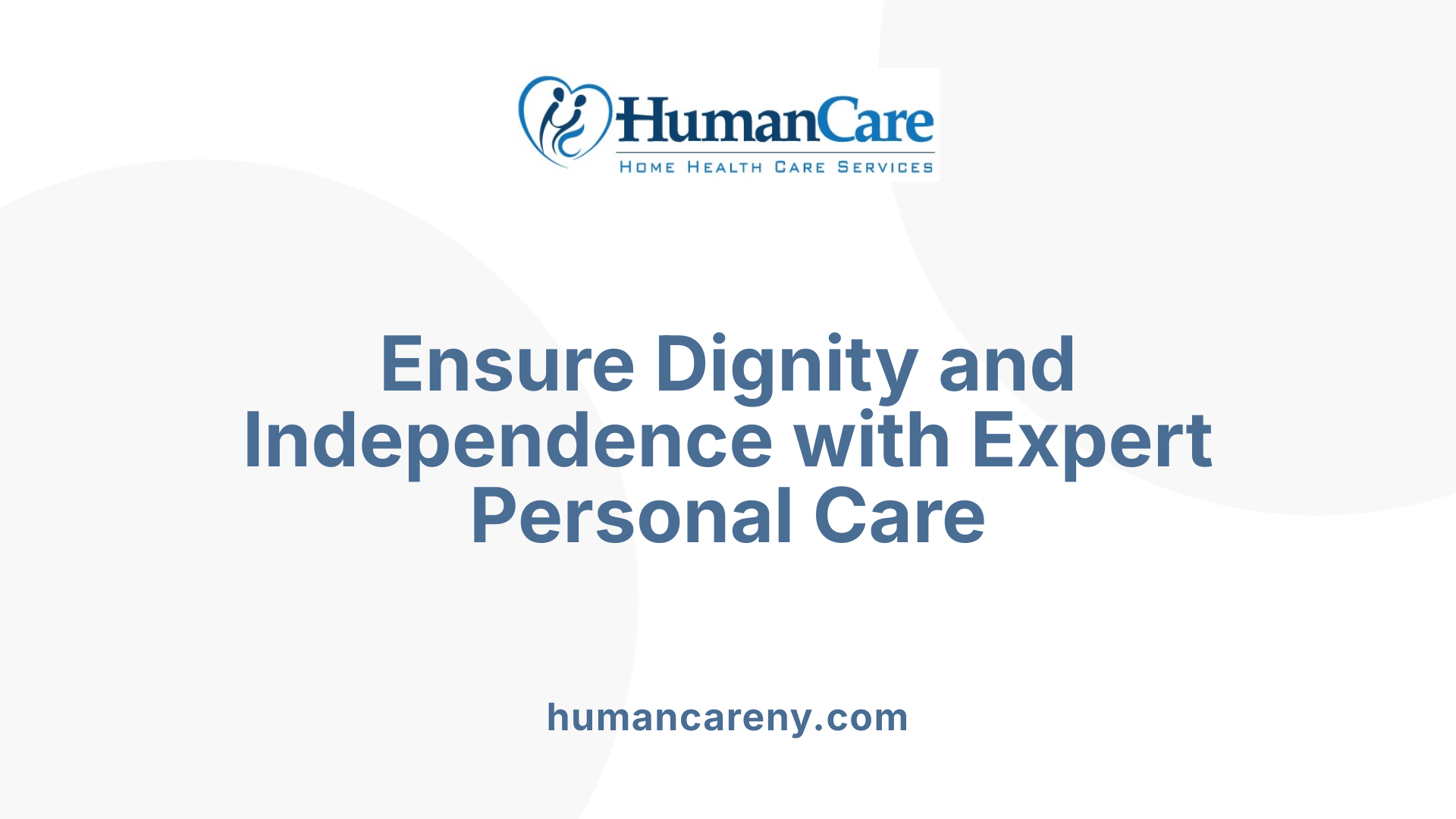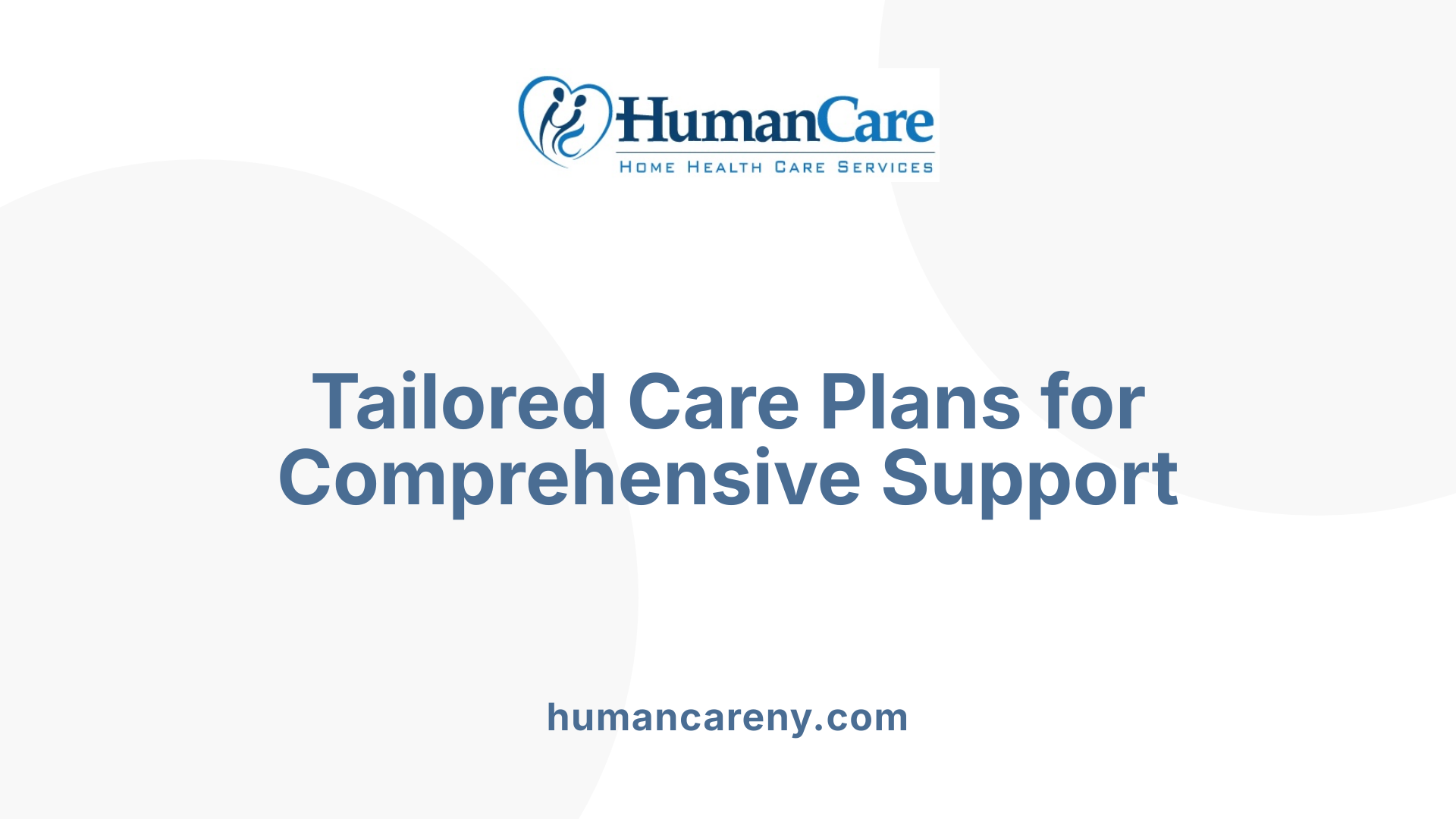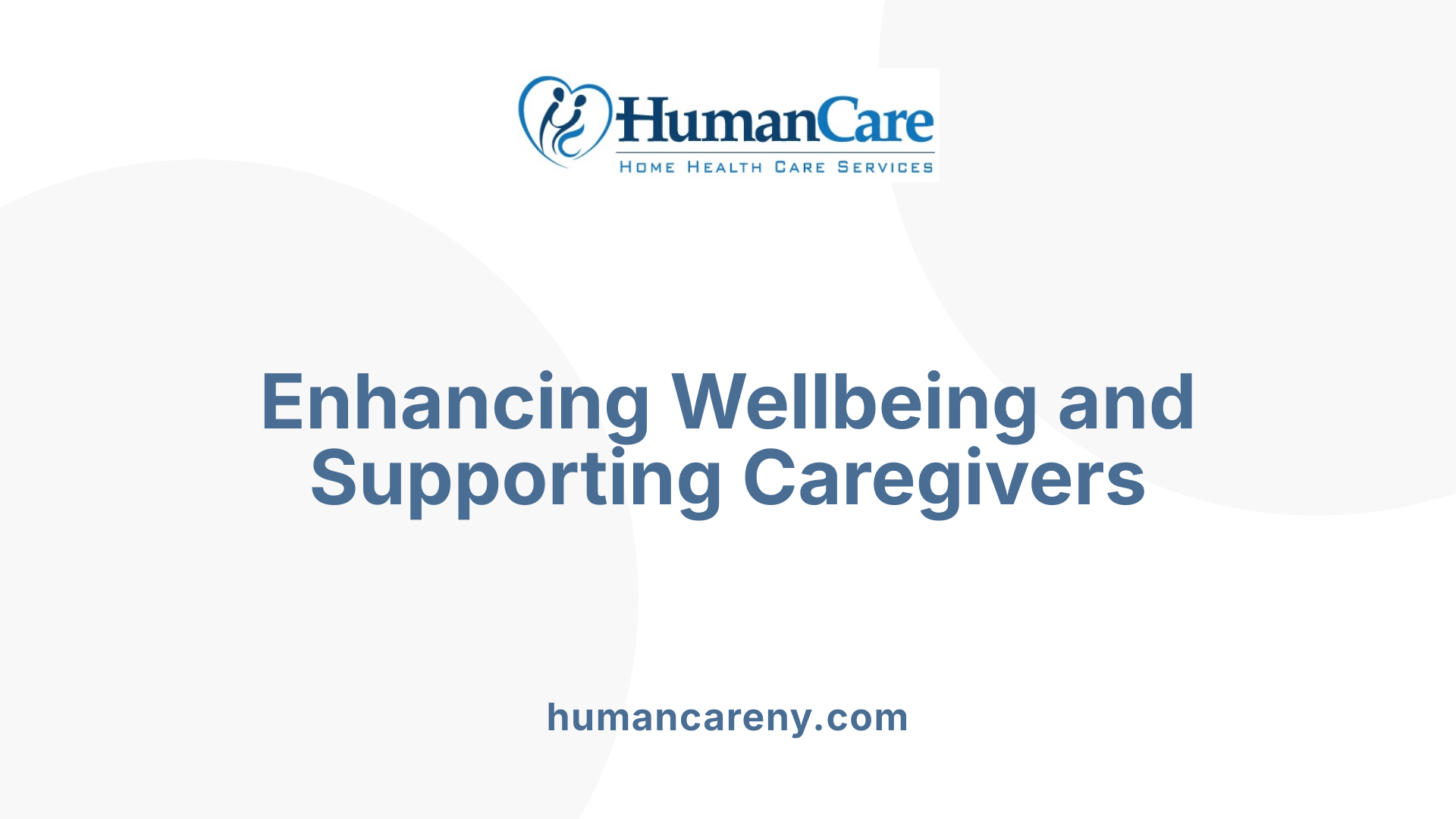The Vital Role of Homemaking Services in Elderly Care
Maintaining personal care and hygiene is essential for the health and dignity of elderly individuals. Homemaking services, often provided through structured programs and agencies, play a critical role in supporting seniors to live independently in the comfort of their own homes. This article explores how homemaking services assist older adults with personal care and hygiene, bridging the gap between medical and non-medical support, and enhancing quality of life.
Personal Care: Direct Assistance with Hygiene and Daily Living Activities

What are personal care services?
Personal care services offer practical help to individuals who face challenges in managing daily activities due to illness, disability, or aging. These services primarily include assistance with personal hygiene tasks such as bathing, dressing, grooming, and toileting. They also cover mobility support and meal preparation, with the goal of enabling individuals to live safely and independently in their own homes.
How is support with bathing, dressing, grooming, and toileting provided?
Trained home health aides or personal care assistants help clients with bathing routines, assisting them gently while respecting their comfort. Dressing and grooming support includes aid in choosing appropriate clothes and maintaining personal appearance. Toileting assistance is delivered discreetly and respectfully to uphold the individual's dignity and privacy.
Why is dignity and privacy important in personal hygiene support?
Maintaining dignity and privacy during personal care tasks is essential as these activities are inherently sensitive. Care providers adhere to rigorous privacy protocols, ensuring client rights are protected. This respectful approach not only safeguards self-esteem but also fosters trust, making assistance more effective and comfortable for recipients.
What mobility assistance and fall prevention measures are included?
Mobility support involves helping clients with transfers, walking, and positioning to encourage safety and reduce the risk of falls. Fall prevention strategies include monitoring the home environment, assisting with balance during movement, and encouraging regular activity to maintain strength.
Together, these personal care services support older adults and persons with disabilities in managing essential daily living activities with dignity, safety, and independence.
Homemaking Services: Supporting a Clean, Safe, and Functional Home Environment

Light housekeeping tasks
Homemaking services in Delaware provide essential assistance with light housekeeping chores. These include routine cleaning activities such as dusting, vacuuming, and tidying that help maintain a clutter-free living space. Such tasks ensure that the home environment remains orderly and comfortable for elderly and disabled individuals.
Laundry and kitchen cleaning
Assistance with laundry is a vital part of homemaker services, helping clients keep their clothing and linens clean and fresh. Kitchen cleaning is also provided, which includes wiping surfaces, cleaning appliances, and maintaining a hygienic cooking area. This support helps seniors and individuals with disabilities manage household responsibilities that they may find challenging.
Bathroom sanitation and bed making
Homemaker aides ensure bathroom sanitation by cleaning and disinfecting surfaces to reduce health risks. They also assist with bed making, which contributes to overall comfort and hygiene. These tasks play a significant role in preventing infections and creating a safe living environment.
Contribution to health and safety through household upkeep
By managing these household tasks, homemaker services promote the health and safety of their clients. Keeping the home clean and functional reduces hazards such as slips and falls and supports the elderly and disabled in living independently. This upkeep is crucial in enabling clients to maintain dignity and quality of life while preventing situations that may require more intensive medical care or institutionalization.
Integration of Personal Care and Homemaking: Customized Care Plans and Skilled Staffing

Assessment and Individualized Care Plans
Personal care and homemaking services in Delaware are carefully structured around individualized care plans developed jointly by consumers and care managers. These plans, often termed Individualized Service Plans (ISP), assess the specific needs of each person, ensuring that assistance is tailored to their physical abilities and daily requirements. This customization allows recipients to receive appropriate support ranging from personal hygiene assistance and meal preparation to light housekeeping and mobility support, all aimed at maintaining independence.
Training and Supervision of Home Health Aides and Homemakers
The staff providing these services are thoroughly trained in privacy protocols, sanitation practices, client rights, and incident documentation. While home health aides focus on assisting with activities of daily living such as bathing, dressing, and grooming, homemakers handle household tasks including laundry, kitchen cleaning, and general housekeeping. These aides work under the guidance of registered nurses who assess and oversee the care to ensure professional standards are met consistently.
Privacy, Sanitation, Documentation Protocols
Providers are required to comply with strict regulations, including the protection of client privacy and maintenance of hygiene standards. Documentation is meticulously tracked, detailing the time and nature of services delivered to ensure accountability. This includes maintaining records of incident reports and adhering to clients’ rights, which safeguards both clients and service providers.
Coordination with Nursing Care Where Applicable
In instances where health-related services are necessary—such as medication reminders, wound care, or physical therapy—personal care aides coordinate closely with nursing staff. This integrated approach helps manage chronic conditions effectively and supports recovery from illness or surgery. The collaboration between personal care and nursing professionals guarantees comprehensive home care that addresses both personal and medical needs, improving overall outcomes for seniors and individuals with disabilities.
Programs and Eligibility: Accessing Homemaking and Personal Care Services
Eligibility criteria based on age and disability
In Delaware, homemaking and personal care services are primarily available to residents aged 18 and older who have physical disabilities, as well as older adults aged 60 and above who need support with daily activities. These criteria ensure that those most in need—whether due to disability or age-related limitations—can access assistance to maintain independence.
Role of Medicaid waivers and state programs
Services are often funded and coordinated through Medicaid waivers like the Delaware Lifespan Waiver and state-administered programs such as the DSAAPD Homemaker Program. These programs focus on supporting older adults and persons with disabilities by delivering services like personal hygiene assistance and household chores. Utilizing these waivers helps reduce costs for both individuals and taxpayers by offering care at rates typically lower than private market prices.
Veterans’ home care programs
Veterans in Delaware can access specialized homemaker and home health aide services designed to help with personal care, mobility, grooming, and daily chores. These aides work under registered nurse supervision to provide tailored care plans. The program serves veterans of any age who meet clinical criteria and offers an alternative to nursing home care, including respite options for family caregivers. Eligibility may involve a copay depending on service-connected disability status.
Access through resource centers and enrollment processes
Individuals seeking these services can contact the Delaware Aging and Disability Resource Center (ADRC), a centralized hub that provides information and enrollment support statewide. Services are arranged based on individualized care plans with detailed scheduling and documentation to ensure quality and compliance. This organized system simplifies access and helps residents connect with appropriate care providers efficiently.
Financial Aspects and Cost-effectiveness of Homemaking and Personal Care
Coverage through Medicare, Medicaid, and Private Insurance Limitations
Medicare generally covers limited home health services for short-term needs through certified agencies, focusing on medical care rather than personal or homemaking assistance. Medicaid coverage varies by state and often includes broader services such as homemaking and personal care, especially through waivers like Delaware's Lifespan Waiver. Private insurance plans largely do not cover homemaking or personal care expenses, with some exceptions for certain long-term care insurance policies.
Cost Savings Compared to Private Market Rates
Services purchased through state programs have been found to cost significantly less than equivalent private market services, with personal care prices up to 26% lower and homemaking services approximately 17% less expensive. For example, participation in programs like MI Choice demonstrated over $3.5 million in cost savings by utilizing pre-qualified agency providers instead of private contractors.
Impact on Healthcare Expenditure Reduction
Providing homemaking and personal care services has shown measurable impacts in reducing hospital and emergency department use. Estimated annual savings include approximately $1.6 million from avoided hospitalizations and $220,000 from decreased emergency visits. These services help delay institutionalization, reduce elder abuse, and support family caregivers, thereby lessening overall health system burdens.
Role of Copay and Veteran Disability Status in Payments
For veterans receiving homemaker and personal care services, eligibility includes clinical criteria and location availability, with copayment obligations often linked to the veteran's service-connected disability status. This approach balances access with cost-sharing to ensure sustainable program support while maintaining affordability for veterans.
| Aspect | Details | Impact |
|---|---|---|
| Medicare Coverage | Limited to short-term, medical home health care | Restricts access to homemaking, personal care |
| Medicaid Coverage | Varies by state, includes waivers for homemaking and personal care | Expands availability for eligible populations |
| Private Insurance | Generally excludes homemaking and personal care costs | Necessitates out-of-pocket payments or other plans |
| Cost Savings | 17-26% less expensive via state programs | Reduces taxpayer burden and personal expenses |
| Healthcare Cost Reduction | $1.6M hospital, $220K emergency savings annually | Supports sustainability of healthcare systems |
| Veteran Copay | Based on service-connected disability status | Facilitates program access while encouraging responsible usage |
These financial elements underscore the value and importance of investing in homemaking and personal care services to support elderly and disabled populations effectively and affordably.
Broader Benefits: Enhancing Quality of Life, Preventing Institutionalization, and Supporting Caregivers

Companionship and Social Support
Beyond practical help with daily activities, companionship plays a vital role in improving emotional and social wellbeing for older adults. Volunteer services and trained aides provide social interaction that helps reduce feelings of loneliness and isolation. Emotional support fosters a positive outlook and contributes to overall mental health.
Meal Preparation and Nutritional Assistance
Nutrition is a cornerstone of health, especially for those with limited mobility or medical conditions. Assistance with meal planning, grocery shopping, and preparation ensures that seniors follow physician-prescribed diets and receive proper nutrition and hydration. Programs like Meals on Wheels deliver regular nutritious meals, supporting physical health and energy levels.
Delaying Nursing Home Placement and Reducing Elder Abuse
Personal care and homemaking services help older adults maintain independence at home, significantly reducing the likelihood of premature nursing home placement. Recipients of these services are more likely to remain in their own homes and enjoy a better quality of life. This independence also helps reduce risks of elder abuse, as supportive environments enhance safety and dignity.
Respite Care for Family Caregivers and Mental Health Support
Family caregivers often face stress and fatigue. Respite care services provide temporary relief, allowing caregivers to rest and recharge. Additionally, access to geriatric care managers and mental health professionals supports caregiver wellbeing. This support not only benefits caregivers but also improves the quality of care recipients receive.
These interconnected benefits underscore the importance of personal care and homemaking services as crucial elements in sustaining health, independence, and emotional wellness for elderly and disabled populations, while also alleviating caregiver burden.
Empowering Independence and Well-being Through Homemaking Assistance
Homemaking services, along with personal care assistance, form a vital pillar of support for elderly individuals striving to maintain dignity, hygiene, and independence in their own homes. These services, backed by carefully tailored care plans and trained staff, not only address daily living needs but also support the broader goal of enhancing quality of life while reducing healthcare costs. With sustainable funding and increased accessibility, homemaking services will continue to be integral in helping seniors age safely and comfortably, surrounded by the familiarity and security of home.
References
- Personal Care - Delaware Health and Social Services
- HOMEMAKER SERVICES PROVIDER IN DELAWARE
- Services for Older Adults Living at Home
- Homemaker and Home Health Aide Care - Geriatrics and ...
- Personal Care and Homemaking Services for Older Adults ...
- Personal Home Care Services for the Elderly
- Types of Home Health Care Services



